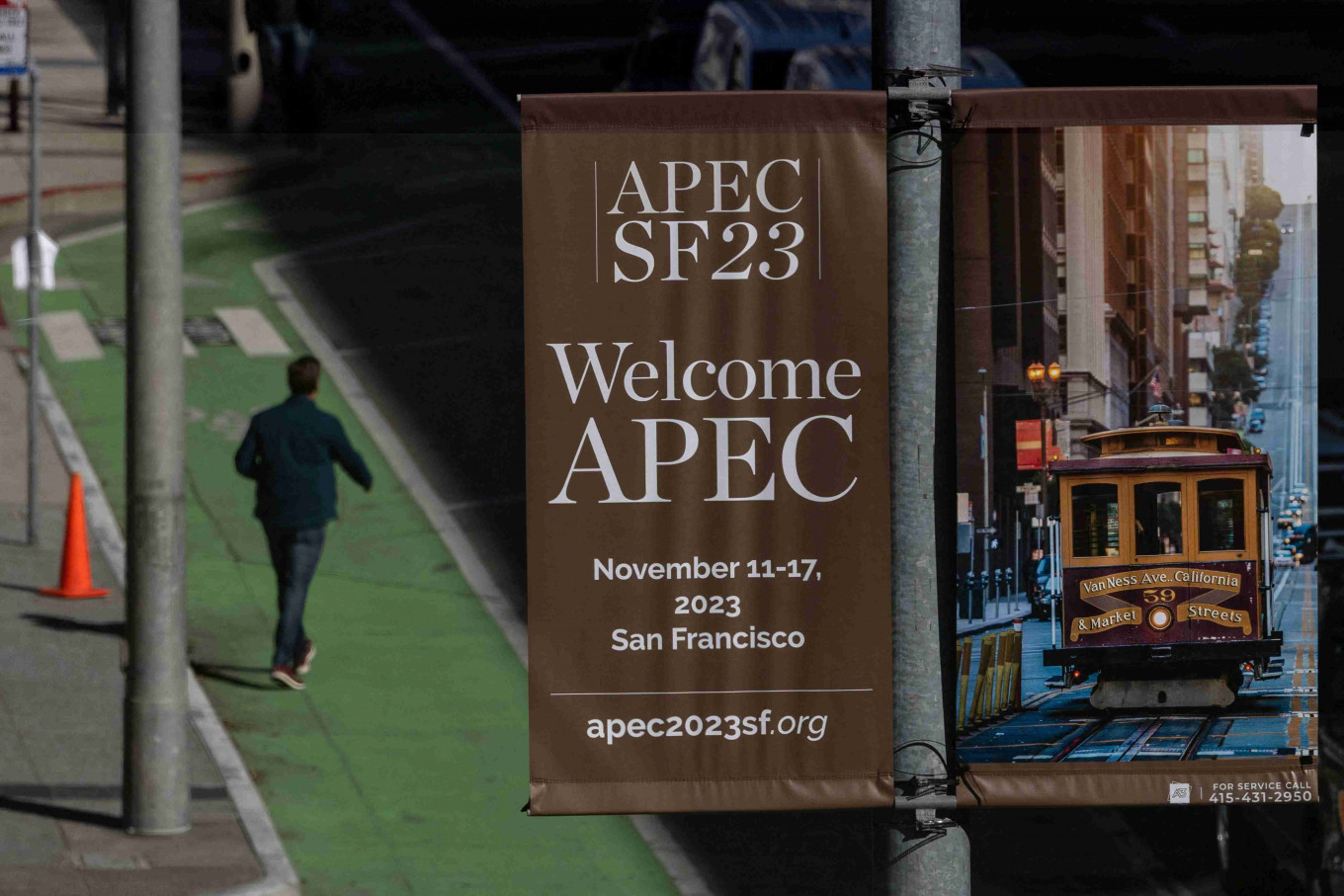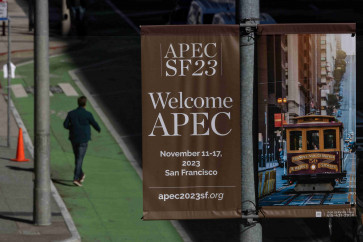Popular Reads
Top Results
Can't find what you're looking for?
View all search resultsPopular Reads
Top Results
Can't find what you're looking for?
View all search resultsAPEC needs to recommit itself to cooperation
The most crucial premise for APEC to recommit to its mission perhaps hinges on the hope that the US and China, its two most powerful members, will make progress in San Francisco in stabilizing their relations.
Change text size
Gift Premium Articles
to Anyone
T
here is something thrilling about a multinational gathering like this week’s Asia-Pacific Economic Cooperation (APEC) meetings in San Francisco, California, the United States. One could not possibly gauge the depth and complexity of the dialogue and how it will impact people's everyday lives worldwide.
One central task for the organization is whether it can recommit itself to the mission it set out with, i.e., facilitating regional economic consultation and cooperation, because it seems to have lost the mission some time ago.
The idea of Asia-Pacific economic integration was first broached by the late Australian prime minister Bob Hawke in a 1989 speech in South Korea. After acknowledging budding bilateral or small-scale multilateral trade agreements in the region and tensions at the General Agreement on Tariffs and Trade (GATT), later succeeded by the World Trade Organization (WTO), he concluded that the Asia-Pacific region has “interests that can be advanced through greater consultation and cooperation.”
He said “the time has come” for regional economies to increase efforts “towards building regional cooperation and seriously to investigate what areas it might focus on and what forms it might take.” Thus APEC was formed.
Asia-Pacific nations have made tremendous strides on this front ever since, with the rise of ASEAN, the Regional Comprehensive Economic Partnership (RCEP) and the Comprehensive and Progressive Agreement for Trans-Pacific Partnership (CPTPP) being examples. The region has seen burgeoning trade volume, greater weight in the global economy and improved livelihoods for its people.
But the region is also threatened by challenges that could endanger its achievements: trade fragmentation, protectionism and struggling post-pandemic supply chains, among others. The most serious, perhaps, is a fraying US-China relationship that looks like it could fall apart at any minute. In the midst of all these challenges, while APEC officials gathered nonetheless in the past few years, the voice of the organization has somewhat been buried.
The most crucial premise for APEC to recommit to its mission perhaps hinges on the hope that the US and China, its two most powerful members, will make progress in San Francisco in stabilizing their relations.


















